Saltwater crocodiles are one of the world's most famous and deadliest predators. Just the thought of them lurking under the water is enough to give you the shivers. We named it one of the most deadliest animals in the world
Learn about more about saltwater crocodiles in our expert guide, including whether crocodiles really sleep with one eye open.
How big are saltwater crocodiles?
Saltwater crocodiles (Crocodylus porosus), aka 'salties' or estuarine crocodiles, are enormous creatures and the world's largest living reptiles. The average male is 5m in length and weighs around 500kg, while females are significantly smaller, with the average female saltwater crocodile measuring a little under 3m in length and weighing less than 100kg.
What's the biggest saltwater crocodile ever found?
The largest saltwater crocodile ever recorded was around 6.3m long, but individuals of up to 7m have probably lived in the past. It's possible that such large crocodiles no longer exist due to extensive hunting of the largest specimens. These huge male salties are estimated to have weighed a staggering 1500-2000kg.
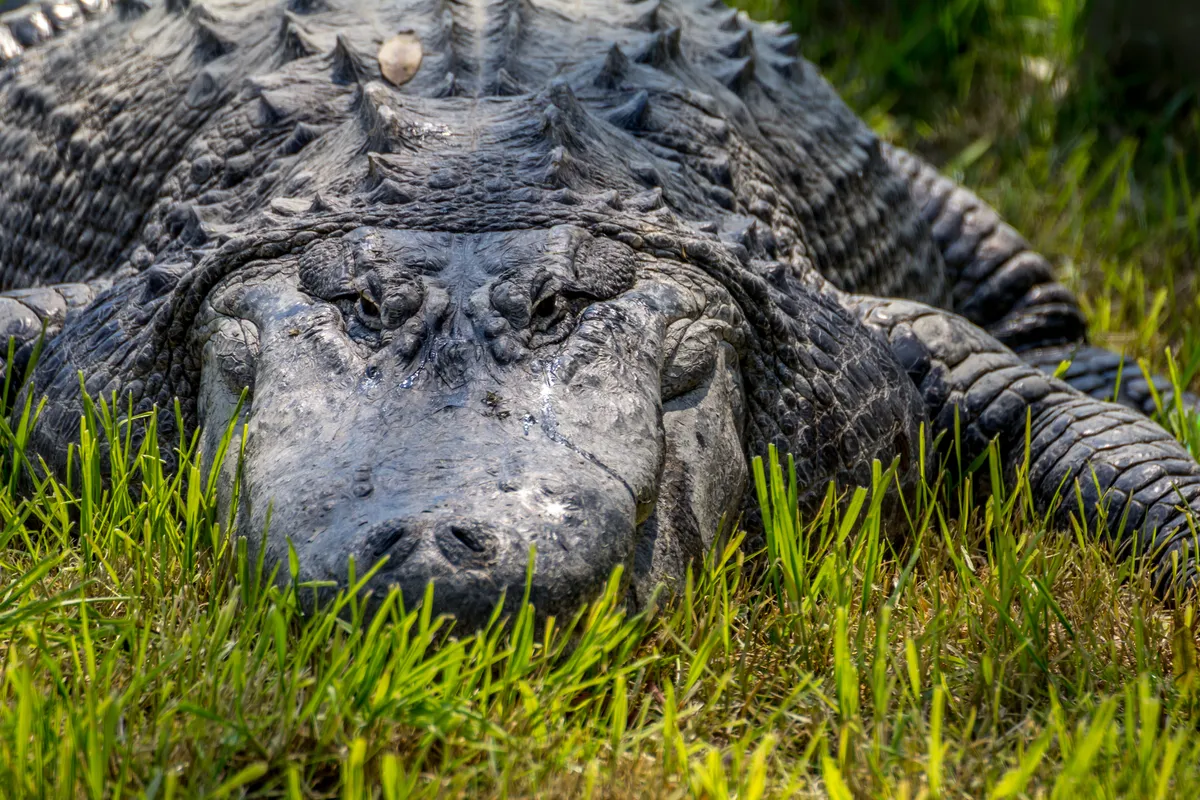
Can a human outrun a crocodile?
The short answer is yes. “Most crocodiles can achieve 12–14kph for short periods,” says crocodile specialist Adam Britton, “which is slower than a fit human can run. So if you’re in reasonable shape, you could definitely outrun a croc.”
Crocodiles have three main types of locomotion: the belly-crawl, used over mud; the high walk, in which the legs push the body up off the ground; and the ‘gallop’, where they bound like a rabbit. “Ancient croc-like creatures likely galloped after prey on land, but most modern crocodiles only gallop to escape danger,” says Adam, “taking prey by surprise launches from the water.”
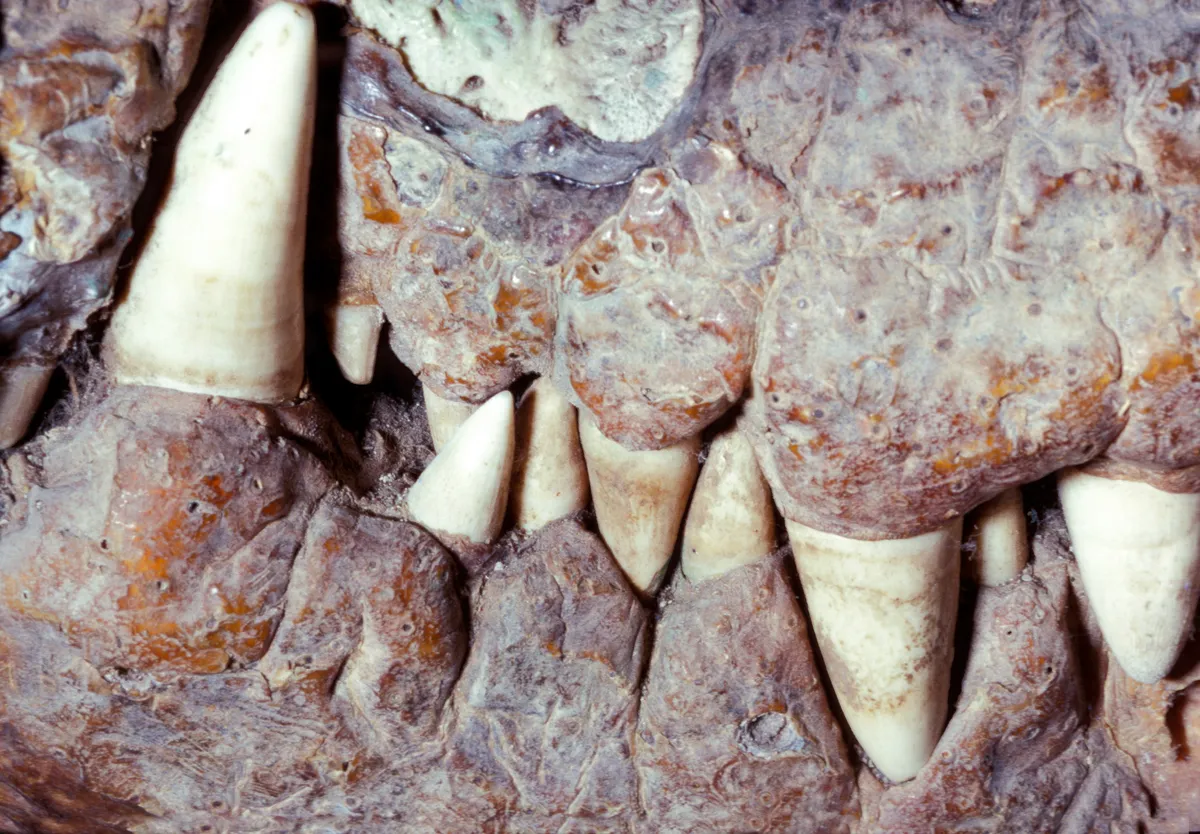
Where do saltwater crocodiles live?
Saltwater crocodiles have a huge range that extends from northern Australia to eastern India and South-east Asia. As their name suggests, saltwater crocodiles are able to live in coastal habitats, but they are comfortable in freshwater rivers as well.
These huge reptiles are so well adapted to life in saltwater that they are able to spend days or even weeks at sea, drifting and swimming hundreds of kilometres and possibly hunting en route.

What makes a saltwater crocodile male or female?
The temperature of the nest in which eggs are laid determines the sex of the offspring. Lower incubation temperatures produce mostly females; higher temperatures mostly males.
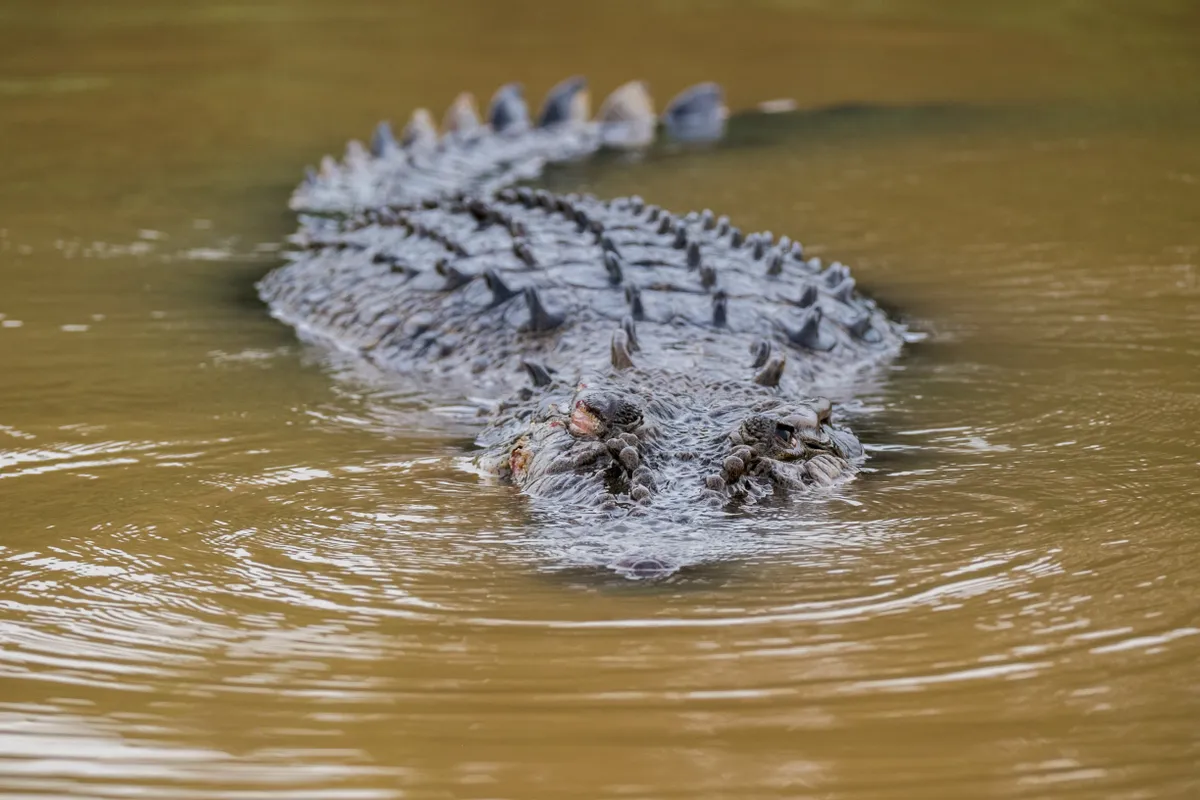
How long do crocodiles live?
Saltwater crocodiles have long lifespans, with many living to more than 65 years, longer than any other crocodile species. It's possible that some saltwater crocodiles may live for over a century, but this has never been verified in the wild. In captivity, there have been several reports of crocodiles living to be over 100 years old.
On the flip side, infant mortality is extremely high in saltwater crocodiles due to extensive predation, and only 1% of newborn salties will survive to adulthood.
Do crocodiles really sleep with one eye open?
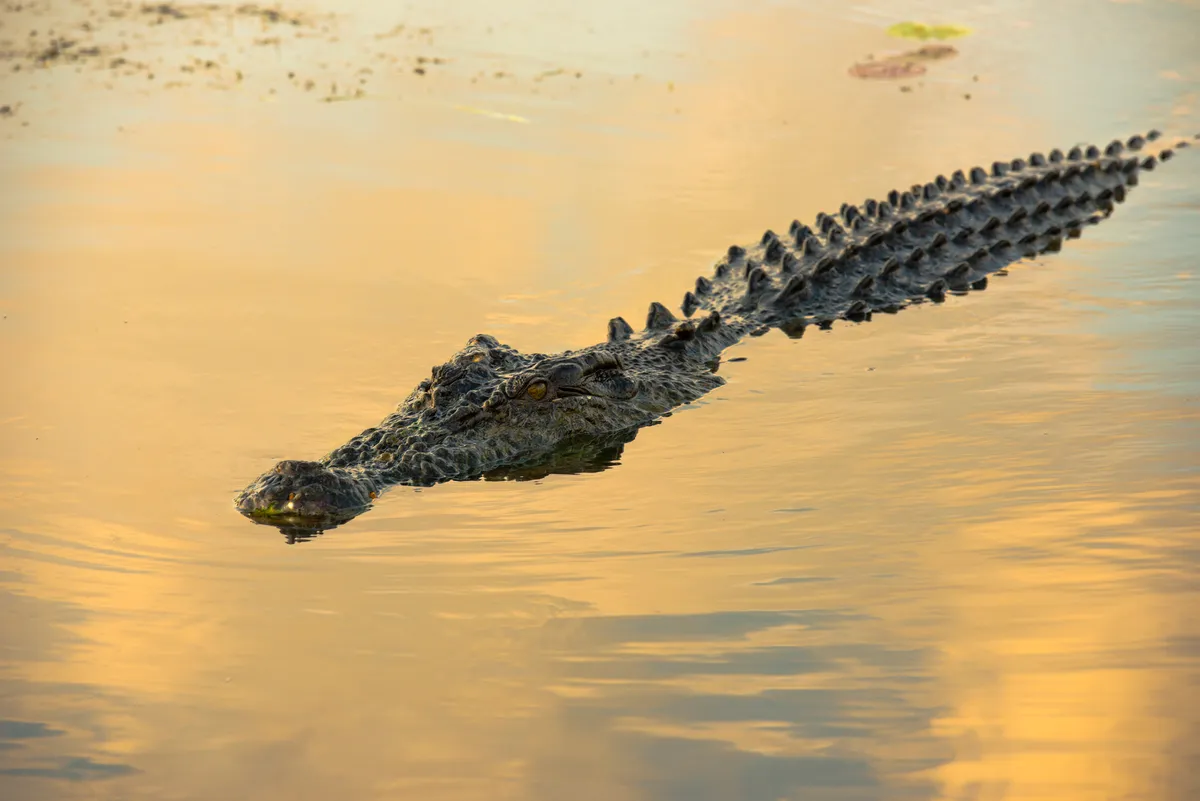
Australian legend has it that crocodiles sleep with one eye open – and scientists have now proved it to be true.
Australian saltwater crocodiles join several aquatic mammals and birds in being capable of unihemispheric sleep, which involves shutting down only one half of their brain at a time, keeping the other half alert to danger.
The central nervous system is wired up such that the right eye remains open when the left side of the brain is awake, and vice versa.
Disconcertingly, experiments showed that the crocodiles were particularly likely to keep an eye out when humans, rather than other crocodiles, were nearby.
How far can saltwater crocodiles swim?
They are known to be fantastic swimmers and can travel long distances by sea, sometimes as much as 900km.
Saltwater crocodiles aren’t particularly strong swimmers, yet there have been many reports of sightings in the open ocean, far from land. It’s possible that these animals were simply lost and destined to drown at sea, though data from the only three individuals to have been tracked in open water would suggest otherwise.
While none of these went very far from land, they did travel hundreds of kilometres at a time by hitching rides on surface currents and tides. Also it is hard to imagine how else these crocs might have colonised so many far-flung islands in South-East Asia and Australasia.
(This was answered by Stuart Blackman)
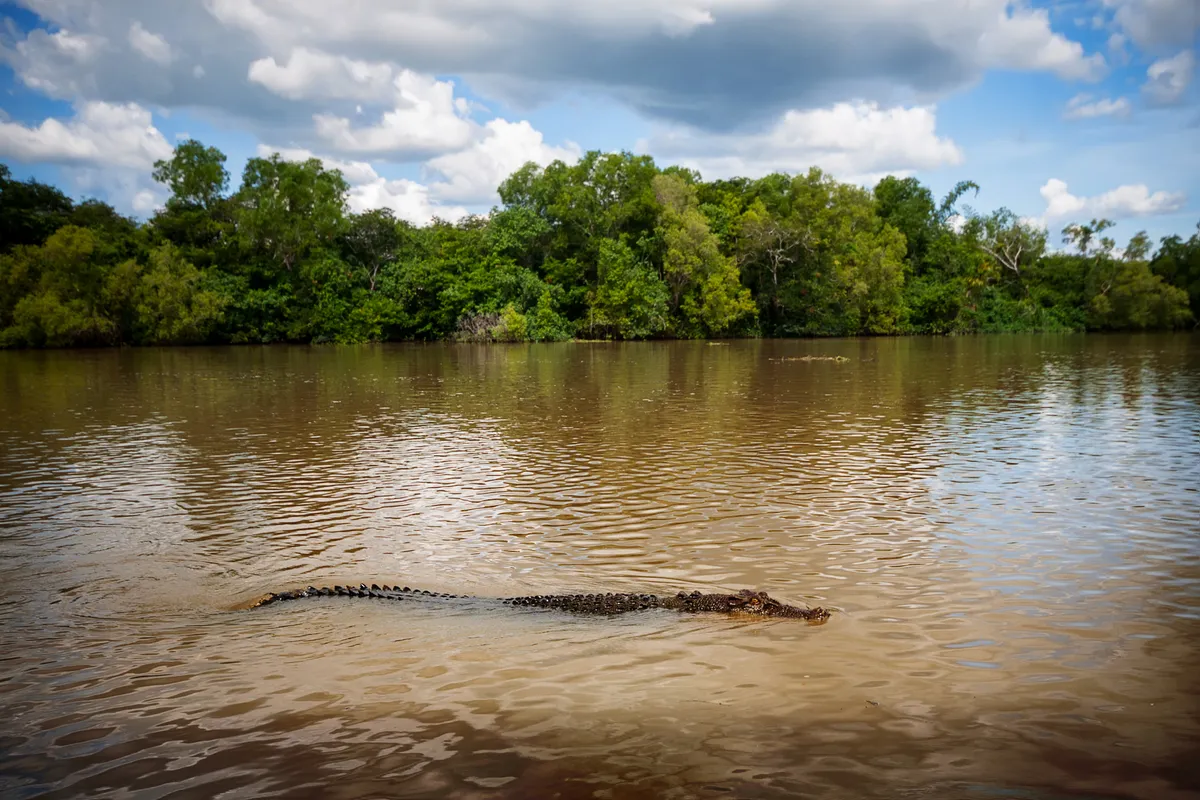
How do saltwater crocodiles open their mouths underwater without drowning?
Salties have a valve at the bottom of the mouth that seals it off from their throat, enabling them to open their mouths underwater.
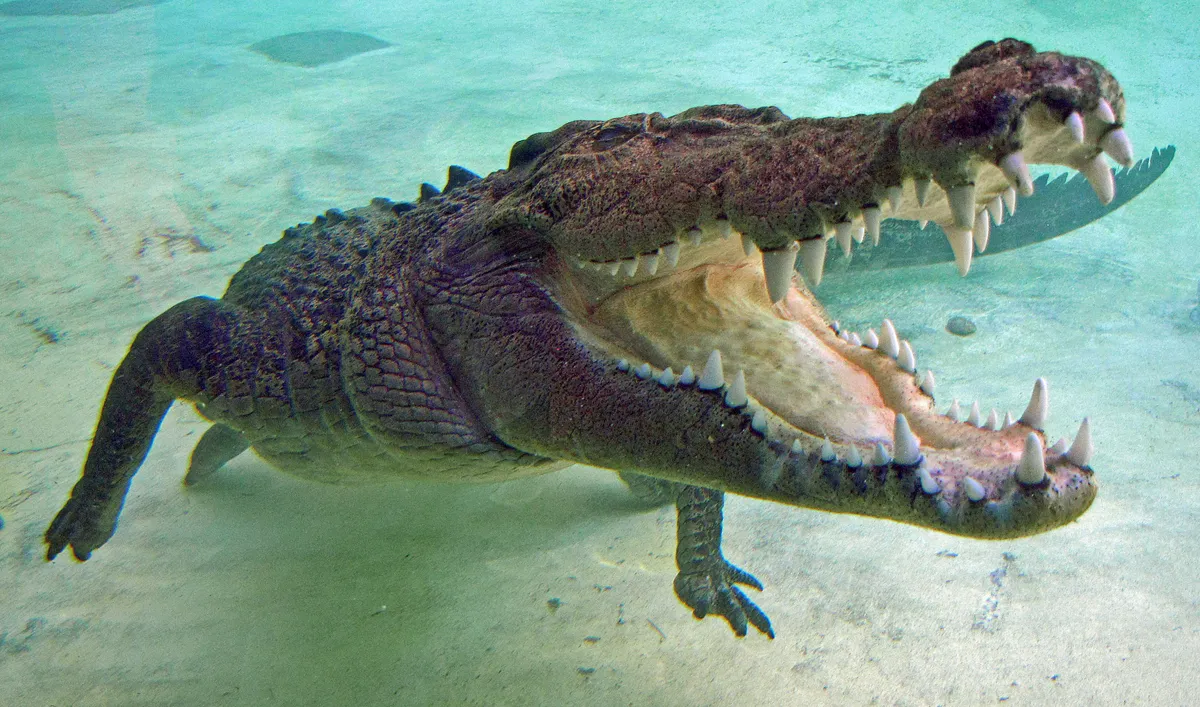
What do saltwater crocodiles eat?
They typically feed on fish, mammals and birds, preferring to hunt at night. Even small crocodiles are able to take relatively large prey, and nothing really stands a chance against a large male saltwater crocodile, which is capable of killing and eating pretty much anything that comes into its territory, including sharks and humans.
What's the "death roll"?
Salties are known for the 'death roll' - a hunting behaviour reserved for larger prey. After drowning its victim, the crocodile rapidly rolls it in the water in order to remove its limbs, as its teeth are designed for gripping rather than tearing flesh.
How to survive a crocodile attack
What to do if you find yourself in a life-or-death situation - and how to avoid being there in the first place.
Almost all attacks take place during our summer (i.e. December to March, when the rivers are swollen by heavy rains, and most victims are rural village children, who cannot resist cavorting in the shallows along the banks.
- Clearly, the best thing is not to be attacked in the first place:
- Don’t swim in any rivers that might have crocodiles in them.
- If you must swim, avoid backwaters and inlets where crocodiles lie in wait.
- If your boat capsizes and you are forced to swim, keep calm – panic will only attract crocodiles. Don’t scream, shout or splash.
- If you fall in, swim straight for the shore, using breaststroke and underwater if you can.
